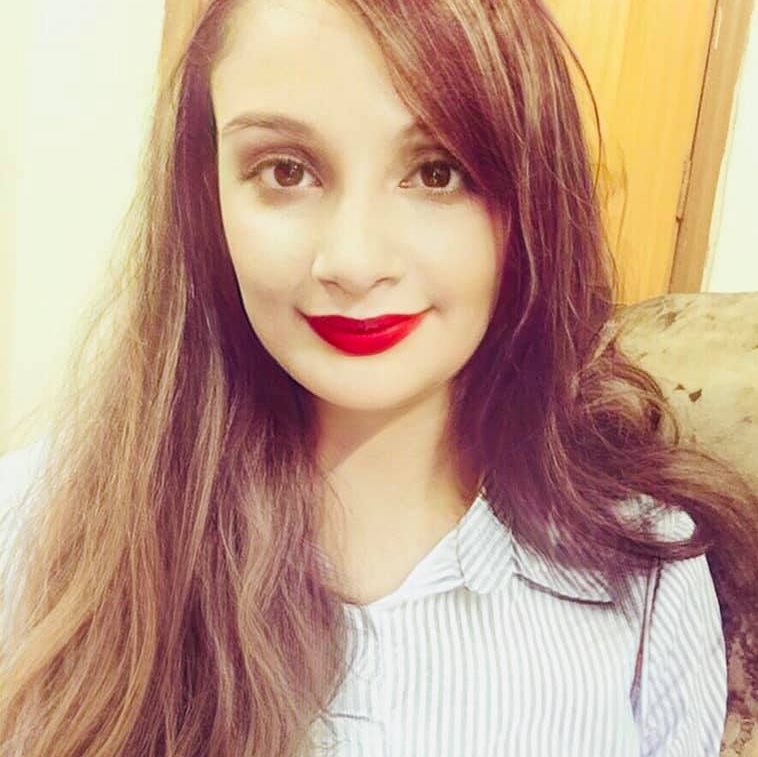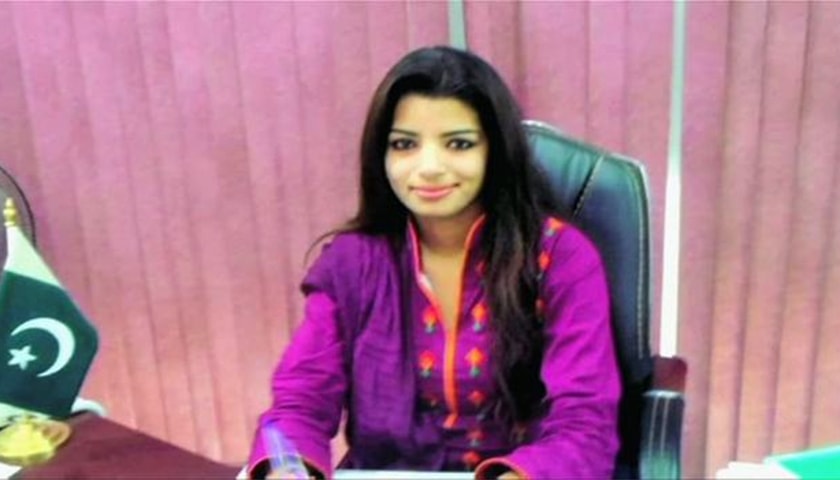It has been five years since Pakistani journalist Zeenat Shehzadi was released after more than two years of enforced disappearance, but there has been no accountability for the torment she endured. Pakistan’s Commission of Inquiry on Enforced Disappearances, or any other constitutional body, has never reached out to her to record her statement following her release.
“I have left my case to Allah because I have no hope for justice. I cannot fight them,” she told Dissent Today, in her first public interview after her release.
Shehzadi was the sole breadwinner of her family, and her abduction not only took an emotional toll on her parents and brothers, but it also deteriorated their financial situation. Her 18-year-old brother, deeply upset by his sister’s disappearance, committed suicide in 2016. “I cannot hold back my tears when I think of his death. What was his crime?” she says.
Shehzadi was abducted in 2015 from the Chaudhry Colony area of Lahore by masked men whom she claims were personnel from intelligence agencies. Hers was the first known case of a woman journalist’s abduction in Pakistan.
At the time of her abduction, Shehzadi was reporting on and following the case of an Indian citizen, Hamid Nehal Ansari, who had gone missing from the Kohat city of Pakistan’s Khyber Pakhtunkhwa province, in 2012.
After failing to obtain a visa, Ansari had illegally crossed the border from Afghanistan to meet a Pakistani woman in Kohat with whom he had formed a romantic relationship over Facebook. Initially, Pakistani authorities denied that Ansari was in Pakistan, but after Shehzadi pursued the case before the Missing Persons Commission, the then deputy attorney general had to acknowledge that Ansari was in the detention of the Defense Ministry pending trial by a military court.
After Shehzadi’s recovery in 2017, Ansari’s case was once again brought into focus, and he was subsequently released in 2018.
Opening up about the details surrounding her abduction and release, Shehzadi told Dissent Today, “I had been facing surveillance from agencies ever since I began working on the Hamid Ansari case.”
“I have left my case to Allah because I have no hope for justice. I cannot fight them.”
Shehzadi started reporting on the case after she got in touch with Ansari’s mother in Amritsar on social media and was moved by her ordeal. She went to Kohat and met Ansari’s Pakistani friends who had hosted him before he went missing. “I visited all those places where Ansari had stayed,” she says. “After thoroughly investigating the family’s claims about his disappearance, I was convinced that Ansari was in official custody, but they were not declaring it.”
Shehzadi says it was not just her journalistic instinct but the plight of Hamid’s mother and the way she was begging for her son’s release that made her want to pursue the case.
Acknowledging Shehzadi’s efforts in finding the truth about Ansari’s whereabouts, the then head of Missing Persons Commission, Justice (r) Javed Iqbal, had appointed her a member of the investigation team, ordering the investigators to keep her in the loop.
Shehzadi says her involvement in the case was what led to her abduction. “I was pursuing the case on humanitarian grounds because I found myself sympathizing with Ansari’s mother who was desperate for her son’s recovery, but the security agencies could not comprehend this.”
‘IF YOU COOPERATE…’
Two days before she was abducted, Shehzadi was interrogated by plainclothes officials of a secret agency who ambushed her outside Human Rights Commission of Pakistan (HRCP)’s office in Lahore and asked her to go with them. “They told me if I cooperated with them, they would not harm me. I agreed to go with them.”
Shehzadi was interrogated about the Nehal Ansari case while being kept blindfolded for 12 hours, after which she was allowed to go. She thought cooperating with the authorities meant she would now stay off their radar, unaware that this 12-hour interrogation was just the beginning of her long nightmare.
Two days later, on August 19, 2015, Shehzadi was abducted by gunmen who covered her mouth and dragged her in a car when she was on her way to her office. During the two-year long captivity, Shehzadi was kept in Lahore and later Quetta, and faced both physical and mental torture. “They considered Hamid Ansari an Indian spy and thought I must also be a spy since I was invested in his case.”
Shehzadi’s email and WhatsApp records were seized by the personnel, but they could find no evidence proving she was working as a spy for India.
BEING TORTURED AND HEARING TORTURE SCREAMS
Describing the cell where she was kept, Shehzadi says it was a basement that had prison bars. She recalls hearing screams of men being tortured in other cells. “There were many abductees, but we were all kept separately. I was the only woman there,” she says, adding that the physical and mental torture she endured at the hands of her captivators would often make her numb. But within a few months of her abduction when no evidence against her was found, her abductors told her they would release her soon.
“They told me a senior investigating official would come and ask some questions after which I would be released, but they kept delaying it. I was told I would be released in three months, and later they said it would take six months,” she says, adding that the abductors did not know how to release her without attracting media’s attention.
Describing the cell where she was kept, Zeenat says it was a basement that had prison bars. She recalls hearing screams of men being tortured in other cells.
STRANDED AT CHAGAI BORDER
Even after being finally released from the Lahore torture cell, her ordeal was far from over. After a little over a year, the intelligence officials in whose custody she was in Lahore took her to the Afghanistan border in the Chagai district of Balochistan, and left her at a refugee camp set up in the mountains. Shehzadi spent three months at the camp with Afghan refugees. “There was no electricity and direct water access,” she recalls. The area did not have mobile services either. “To distract myself from what I was going through, I mingled with the Afghan children there and taught them how to read and write.”
Three months later, when the refugee family she was staying with decided to return to Afghanistan, they wanted her to go with them. But Shehzadi did not want to leave the country. To avoid having to go to Afghanistan with them, Shehzadi left the camp and began running far from the area. “I did not know the direction I was going, but I kept running.”
Her feet were bleeding from constant running, and she could hear the roars of wild animals. After running for hours, she reached a Levies and Frontier Constabulary (FC) checkpoint in the Dalbandin city of Chagai district. She was given water and food by the Levies personnel, but when they googled her and found out that she was a journalist, they took her to District Commissioner’s House. “The DC asked questions as if I were a criminal,” she says. Shehzadi was held at the DC office until the intelligence personnel who had kidnapped her from Lahore came to Quetta and threw her in yet another torture cell.
“Just when I had thought I would be freed, I encountered the same men who had abducted me in the first place. “It was like dé·jà vu. Similar prison bars that I saw everyday in Lahore. Same questions. Same torture.”
Shehzadi regretted running away from the refugee camp. “I thought to myself I shouldn’t have run. I was better off with the Afghan children,” she says, as her voice breaks recalling the ordeal.
After six months of hostile interrogation in Quetta, she was finally allowed to go. “They told me a team of higher-ups from Islamabad will come and meet me before I am released.” The officers from Islamabad, she says, were apologetic and said they would compensate her for the treatment meted out to her.
“They said they would pay for my higher education and give my brother a job. But I told them to take me to Lahore. I wanted nothing from them.”
She was then taken to Rawalpindi where they asked her to get psychological treatment. Shehzadi was eager to go home, but the officers insisted she stay in Rawalpindi to get medically examined. Her family had by this time relocated to Faisalabad from Lahore under financial duress, and she finally reunited with them in Faisalabad after completing her therapy in Rawalpindi.
“They said they would pay for my higher education and give my brother a job. But I told them to take me to Lahore. I wanted nothing from them.”
LIFE AFTER RELEASE
Shehzadi remained low profile for over three years after her release, during which time she got married in Faisalabad. “My mother was worried for my future, so I tied the knot out of compulsion,” she says.
Shehzadi has recently begun working at a newly-launched media channel in Lahore, where she is barely paid the minimum wage. While she attempted to get back into journalism, she has not been able to regain the stability she had before her abduction.
Asked if the promises of compensation made to her by intelligence officers at the time of her release were fulfilled, Shehzadi says those were empty words, and she received no compensation.

The writer is a journalist and the Founding Editor of Dissent Today. She covers politics, human rights, and religious extremism. She tweets at @AiliaZehra.

